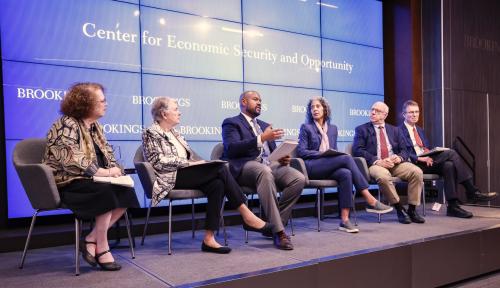The June jobs report released today shows an increase of 223,000 payroll jobs and a drop in the national unemployment rate to 5.3%. Unfortunately, wages were completely flat, remaining at $24.95 an hour.
So the job market continues to steadily improve, but is doing so too slowly to raise the earnings of workers, which have remained stagnant throughout the economic recovery and are lower than they were in the year 2000.
How much can policymakers do to raise worker earnings when the labor market remains too soft to do so directly?
In a move that is quite overdue, President Obama announced that he will increase the number of workers eligible to receive the 50% premium on overtime work by about 5 million. He plans to raise the ceiling on the annual earnings of workers who can receive overtime pay to over $50,000. The current ceiling — at about $23,000 — hasn’t been adjusted for inflation in decades.
Not surprisingly, some employers complain that this is a burdensome move, since it forces them to cut back on how much overtime they ask for from workers. But research suggests this response will be minimal— and not a terrible thing if it does happen — mainly because employers might actually hire more workers in the process. The higher overtime pay might even come out of workers’ regular hourly wages— which employers might now reduce somewhat — though most workers will still likely come out ahead after getting the overtime premium.
Another route to higher earnings, of course, is to raise the minimum wage. President Obama’s reasonable proposal for an increase in the federal minimum to $10 per hour is going nowhere in Congress. So many states and localities are moving ahead on their own, raising wages in their own jurisdictions above the current $7.25-per-hour federal level. While most such state-level increases are modest — in the range of $8 to $10 per hour — some localities are going as high as $15. In fact, three major cities — Los Angeles, San Francisco, and Seattle — have recently raised their minimum wages this high, and activists in other cities, like Washington, D.C., are clamoring for similar increases.
Once again, if employers find labor more expensive, they will “buy” less of it and hire fewer workers, though research suggests this effect will be modest if preceding minimum wage increases are modest to begin with. But increasing the minimum wage above the $10 level isn’t considered modest, and employers in these cities might begin to shave some numbers off of their new hiring — or perhaps relocate entirely to lower-wage jurisdictions. And, at best, these wage increases touch only the bottom 10 to 20% of workers and provide nothing to the vast majority whose wages have also stagnated or declined in recent years.
In my view, some policy efforts to raise worker earnings are warranted and sensible. But there is no substitute for a stronger labor market, which would raise wages across the board. Even at a 5.3% unemployment rate, employers seem to feel no pressure yet to increase workers’ earnings.


Commentary
Raising Earnings of Workers: Market and Policy Approaches
July 2, 2015